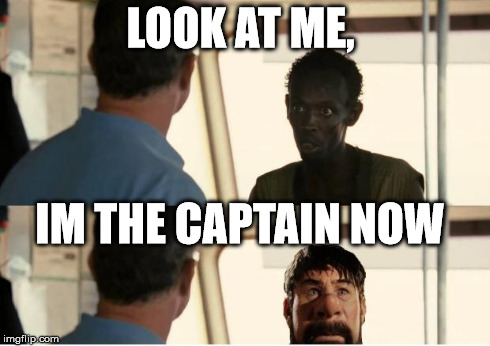
And, in the case of Captain Phillips, the viewer is led to ask questions about the global inequities that might help explain-if not justify-why young Somali men might turn to piracy. Moreover, we are led to wonder whether Babo, the leader of the slave revolt, might actually be a heroic figure-or at least a tragic figure motivated by a just cause-rather than simply a morally depraved one. In the case of “Benito Cereno,” the reader is led to wonder whether the restoration of “order” at the end of the novella is not simply the restoration of unjust relations of domination. In contrast, both the novella “Benito Cereno” and the film Captain Phillips use-and sometimes transform-the original source material in order to raise moral questions that are largely ignored in the memoirs of the real captains. Instead, they each simply present a story of virtuous Americans triumphing over African criminals. Notably, neither the real Captain Delano nor the real Captain Phillips suggests in their respective memoirs that there is anything morally ambiguous or tragic about the stories that they tell. Eventually, Phillips’s ordeal ends when three of the pirates are killed in a sudden attack by Navy SEAL sharpshooters and the fourth is arrested.īoth Captain Phillips and “Benito Cereno” are thus based on original source material in which Americans defy and defeat African hijackers. As a result of his attempts to negotiate with the pirates and to protect his ship and his crew, Phillips ends up on a lifeboat with his four captors. The book describes how in 2009 Captain Phillips’s ship, the Maersk Alabama, was seized by Somali pirates who hoped to obtain ransom for Phillips and the other crewmen of the massive container ship.

The film Captain Phillips was based on a memoir that the real Captain Phillips wrote (with Stephan Talty), titled A Captain’s Duty: Somali Pirates, Navy SEALs, and Dangerous Days at Sea ( 2010).

Instead, owing to the violent intervention of the American captain Delano, the mutinous blacks are all either re-enslaved or killed. By hijacking the Tryal and ordering Benito Cereno, under the threat of death, to pilot it for them, the blacks had hoped to find a life of freedom in Senegal.

Delano eventually learns, though, that the blacks are only pretending to be under the thumb of the whites, for the Africans had actually taken over the ship, killing many of the white crewmen, as well as the ship’s owner, Alejandro Aranda, in the process. When Delano first boarded the Tryal, he was led, through an elaborate ruse orchestrated by the Africans, to believe that Captain Benito Cereno and the other whites were still in charge of the ship. Delano there describes how as captain of the Perseverance he put down a revolt by African slaves that had occurred on a Spanish ship called the Tryal off the coast of Chile in 1805.

Melville based his novella on one chapter of Captain Amasa Delano’s Narrative of Voyages and Travels in the Northern and Southern Hemispheres, Comprising Three Voyages Round the World (Delano 1817/2002). Once drawn into the absorbing tale, though, the audience is subtly led to examine moral questions about America’s role in the world-questions pertaining to slavery and racism, in the case of “Benito Cereno,” and questions pertaining to global inequities, in the case of Captain Phillips.īoth “Benito Cereno” and Captain Phillips were based on previously published memoirs written by real American sea captains. 1Ĭaptain Phillips and “Benito Cereno” thus achieve something similar insofar as they both initially draw in their audience through a commercially appealing adventure story that might be expected to simply celebrate American ingenuity and strength. Some readers of the novella in Melville’s day and some viewers of the film may have been tempted to interpret the respective stories solely as thrilling adventure tales that unambiguously celebrate the triumph and the goodness of American power at the same time, both Melville and the makers of Captain Phillips lead the perceptive reader and the perceptive viewer to ask critical questions about the degree to which American power actually promotes justice. Both the novella and the film take what at first glance might seem like a simple tale of American heroism and transform it into a story that is far more tragic and morally complex. Both works are based on actual events in which black Africans unlawfully seized control of a ship led by whites in both cases, (a kind of) order was eventually restored after Americans violently suppressed the Africans. In this essay I explore some striking similarities between Melville’s novella “Benito Cereno” and the 2013 film Captain Phillips.


 0 kommentar(er)
0 kommentar(er)
